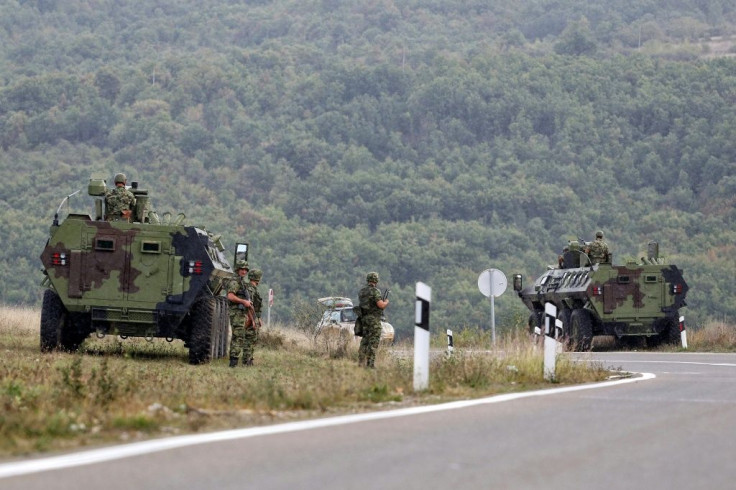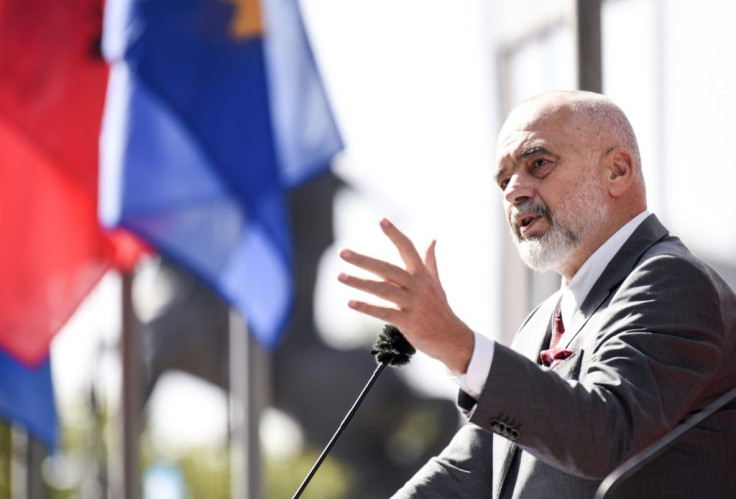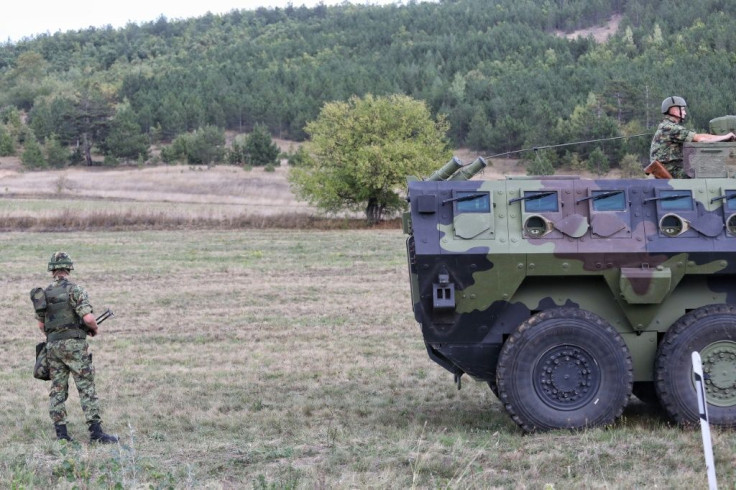NATO Steps Up Patrols As Kosovo-Serbia Tensions Soar
NATO forces in Kosovo announced Monday that peacekeepers had stepped up patrols as Serbia deployed armoured vehicles on the border with the breakaway territory amid the worst regional tensions in a decade.
The international community, led by the European Union, is calling for talks to ease tensions between Serbia and its former ethnic-Albanian majority province, whose declaration of independence in 2008 Belgrade has never recognised.
Relations have deteriorated in the last week since the Kosovo government despatched special police units to the north, an area mainly populated by ethnic Serbs who reject the authority of Pristina.
The move, which angered the Serbs, came after Pristina decided to require drivers with Serbian registration plates to put on temporary ones when entering Kosovo.

Hundreds of ethnic Serbs, many of whom have Serbian number plates, staged daily protests and blocked the traffic at Kosovo's two northern border crossings with Serbia.
On Monday, the situation at the crossing was calm, despite the military stand-off nearby, according to an AFP correspondent.
NATO helicopters have been flying over the region regularly for several days.
The NATO-led peacekeeping force known as KFOR said it was "closely monitoring the situation across Kosovo and remains focused... to ensure a safe and secure environment and freedom of movement for all communities" living in the breakaway territory.
"KFOR has increased the number and duration of routine patrols Kosovo-wide, including in northern Kosovo," it added.

Earlier Monday, the Serbian army deployed four armoured vehicles just two kilometres (1.2 miles) from the Jarinje crossing.
Over the weekend, warplanes from Serbia flew near the Kosovo border, monitoring the crisis area, the first such action since the war.
Kosovo has been under international military protection since 1999, when a NATO military campaign effectively ended the bloody conflict between Serbian forces and ethnic Albanian guerrillas.
The last major tensions in the region happened in 2011 when Kosovo deployed police and customs officials to the border crossings, and Serbs replied by blocking the roads.

The roadblocks were removed shortly after, as a result of a NATO-brokered deal between Pristina and Belgrade.
European Commision spokesperson Diana Spinant on Monday urged both sides to "sit down together and to put an end to the verbal escalation in the region".
The European Union hopes Serbian and Kosovo negotiators will meet, said the bloc's spokesman on foreign affairs Peter Stano.
"There are a lot of diplomatic activities going on now both in Brussels and on the ground," Stano told reporters.
Serbian President Aleksandar Vucic insisted that Belgrade was "committed to peace... but won't allow itself to be humiliated," after Western ambassadors petitioned him to help de-escalate the situation in Kosovo.
On Sunday, Serbian Defence Minister Nebojsa Stefanovic visited troops at two military bases near the Kosovo border, accompanied by Russia's ambassador to Serbia.
Serbian ally Russia does not recognise Kosovo's independence, unlike most Western countries, including the United States.
On Monday, Albanian Prime Minister Edi Rama visited Kosovo and criticised Serbia's "theatrical military manoeuvres," saying that the "only solution is a dialogue".
Serbia disputes Kosovo's right to enforce temporary number plates, arguing it is not an independent nation. But Pristina says it has the right as Kosovo plates are banned in Serbia.
Some analysts suggest that the spiralling tensions are being fanned by both sides as they head into election campaigns. Kosovo holds local elections next month and Serbia has national elections next spring.
Kosovo declared independence in 2008, a decade after a war between ethnic Albanian guerrillas and Serbian forces.
The European Union has mediated in negotiations between two sides for about a decade, but no significant progress was made on normalising the ties between former war foes.
Vucic has said the normalisation process can resume only if Kosovo withdraws the special police forces from the ethnic Serb-populated north.
© Copyright AFP {{Year}}. All rights reserved.




















